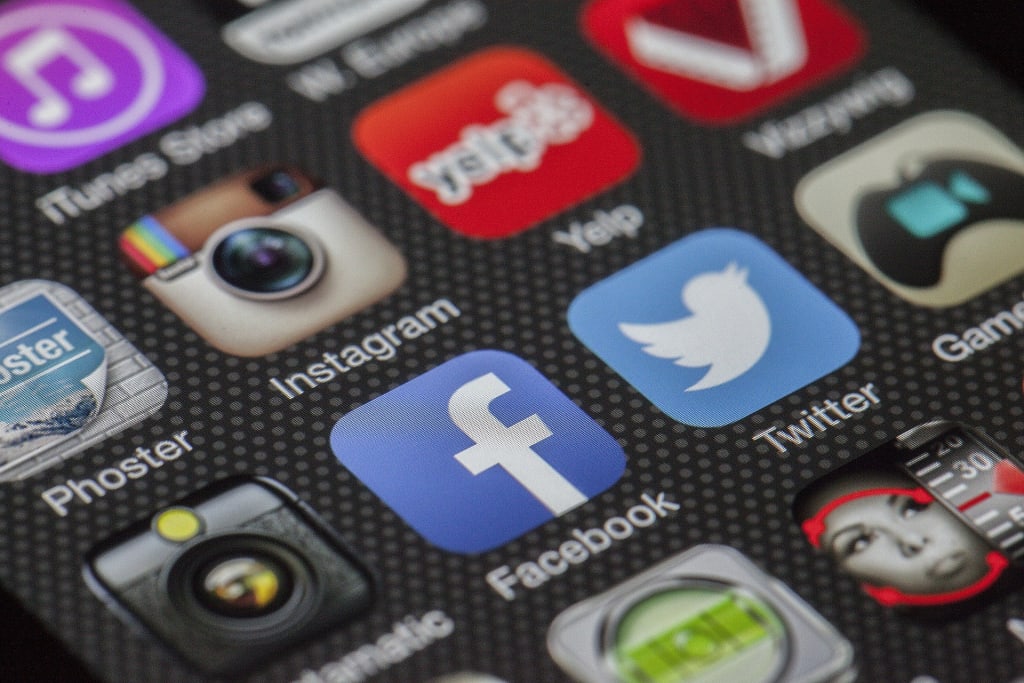Social Media and Our Privacy
How much are we really paying for social media use?

Before the existence of the internet people were further away yet closer to each other at the same time. That is because privacy still existed before the internet came about. I know this is hypocritical to say while posting this article online, but the internet isn't all good.
Invasion of privacy is an issue that internet users basically consent to whenever they come online.
The breach of privacy isn't something that only existed in the modern world. R v Gold & Schifreen is a case that took place in 1984. In this case an unauthorised personnel gained access to the British Telecom’s Prestel Interactive Viewdata service by what is known now as ‘shoulder surfing’. Doing that he gathered that the username for a British Telecom engineer is 22222222 and the password was 1234 which is ridiculous by any standards especially for an engineer with such level of access. By getting these credentials, Schifreen gained access to the system which also had private messages of The Duke of Edinburgh Prince Philip.
This case demonstrates that privacy issues regarding computers and the internet existed long before the modern era and that no one, not even Royalty, is exempt from such threats.
The modern era showcased many different privacy and hacking scandals via the use of viruses, spam emails and phishing however there are many different ways privacy can be invaded that are not technically illegal… per se.
Social media is now in the forefront of privacy issues because of the lack of regulations from governments. Social media regulates their own websites and applications without the need to consult or adhere to specific governmental regulation in fact the only regulations from government that they need to follow are generalised around personal information such as The Data Protection Act (1998) and computer Missus Act (1990) which are United Kingdom laws that apply to all companies that use and store personal data in computers.
Facebook’s terms and conditions state that anything original users post on their social media (for example personal videos and photos) are rightfully Facebook’s property and they can do what they want with it such as create photo calendars that they sell and make profits out of and the original creators of the photos (the users) have no claim over the profits made whatsoever. Now I don’t know about you but I find that shocking.
A realistic example of privacy invasion is the hack on Sony’s PlayStation network back in 2011. Sony is a company that is well known for their tremendous technology ranging from household equipment, to smartphone and entertainment devices. They are arguably most known for their PlayStation gaming platform which has grown over the years and incorporated many social media aspects such as chatting and multi-player capabilities. In 2011, their network was hacked, and may I point out that it was not the first time; this hack was particularly dangerous because of the number of users affected. Over 70 million accounts were affected by the hack and information such as names, e-mails, dates of births and even credit card information were taken by the hackers. Sony was fined £250,000 by the Information Commissioner’s Office (ICO) which is the regulatory body for personal data protection in the U.K., and although it seems like a small amount, the ICO was taking into account the money Sony lost because of the attack. The implications of this attack can be severe because the information taken by the hackers can easily be used to create realistic phishing e-mails that can cause even further harm to the users.
You might be thinking if you stay away from social media then you will be fine. You would be wrong. Cloud technology is something that has picked up speed over the last decade and has become an essential tool for many individuals and companies. Cloud computing is used mainly for storage by everyday normal non-commercial users (iCloud, One Drive and Dropbox) whereas companies use it for many other things such as virtual computing.
A recent and well known scandal involving cloud computing is the iCloud hack that saw celebrity nude pictures released on the internet. This event was later dubbed “The Fappening” by the general public. Even though, I’m sure, no one really complained about seeing nude pictures of celebrities on the internet, it is still a huge intrusion of their lives and should not have happened. Apple denied that there was any security breach to their systems and they claim that the log-in credentials of the celebrities affected was done though deduction and phishing emails to the celebrities.
Even though there was no security breach to the iCloud system there can be another point said against Apple. The point is that images taken by Apple phones are automatically uploaded to their iCloud servers unless the user manually turns it off. This is an example of companies using “opt-out” options instead of “opt-in”. This means that companies can do what they desire without informing the users explicitly because the users might have not checked the “opt-out” box thinking it was an “opt-in” box as it usually is. This was also used by Facebook as they shared users’ information with advertising companies until users showed annoyance with the arrangement that they didn't know they participated in, so Facebook changed their “opt-out” box for an “opt-in” one meaning users can knowingly chose whether to participate in these services or not.
In the end, the rapid increase of technology reach into our lives has undoubtedly affected our privacy negatively because companies become more reliant on our information to conduct their daily business and improve and expand meaning they will find ways to stay in the clear even if they are using our information without our knowledge.
On the other hand, the deep reach technology has in our lives also positively affected us as now we can communicate with each other in many different fashions that effectively eliminate distance between users. It is now possible to talk to someone in the other end of the earth without having to incur gigantic international calling charges by phone companies nor do they have to buy international calling card which gives them limited amounts of minutes to talk to their loved ones. Now we can text chat, phone and even video call each other without sustaining charges beyond the internet subscription.
The final question here is: Are you happy to trade some of your privacy for easier and a more comfortable life, or are you so conservative as to deny the advantages technology brings us because of your thinking that the price is too high? This is a question that needs ample thinking and weighing of choices to answer sufficiently because technology is still growing and this question will only become more and more relevant and essential in the future to come.
About the Creator
Mohammed Darasi
I write fiction, poetry and occasional articles about interesting topics. I recently created a website (just because) which I will be posting my writing in (among other things). it would be great if you check it out. https://mindpit.co.uk/






Comments
There are no comments for this story
Be the first to respond and start the conversation.